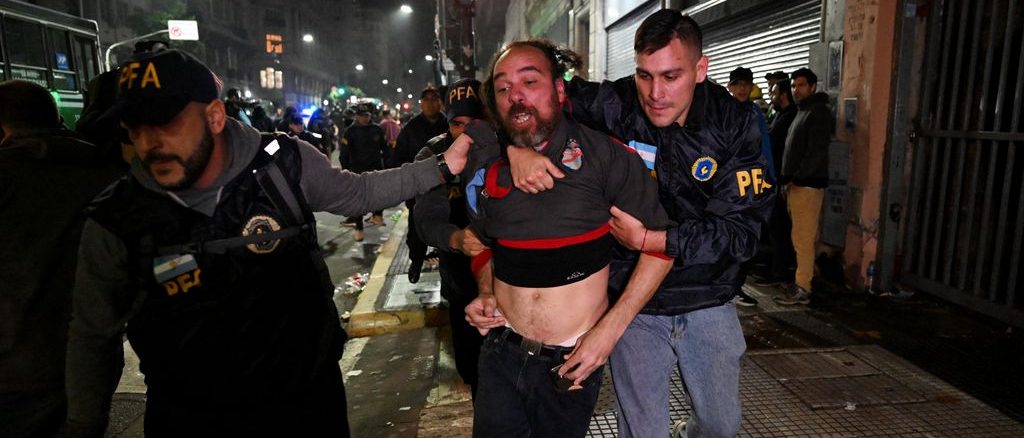
Riots in Argentina during a protest against President Milei’s reform plans
In the Argentine capital Buenos Aires, protests against President Milei’s reforms have turned into riots. The far-right president’s far-right economic plans were approved by the Senate last night (local time).
According to the demonstrators, the proposed reforms will affect millions of Argentines. They threw stones at the police and set cars on fire. Several people had to go to hospital.
Tear gas, rubber bullets and water cannon used against Buenos Aires demonstrators
The protest is aimed at the so-called omnibus law, which the president believes will restore the country’s economy. The law concerns, among other things, the privatization of public companies and making the labor market more flexible, but Milei does not have a majority in parliament and is struggling to implement his reforms.
The law was submitted to parliament earlier this year, but did not receive a majority. The votes were now evenly divided at 36 to 36, with Vice President Villarruel’s vote in favor of the plans being decisive.
Major cuts
It has been restless in Argentina for months. At the end of last year, the economic crisis in the country was the main election issue. After taking office in December, the Milei government halved the number of ministries and the currency was devalued. This led to a decrease in the budget deficit, but also to a drastic drop in consumption and economic activity in the country.
Milei then also cut subsidies for transport, fuel and energy, causing Argentines to lose a fifth of their purchasing power. Thousands of civil servants have lost their jobs. Nearly 60 percent of the population now lives below the poverty line.
The Argentine government also made significant cuts in higher education. For example, budgets were reduced or not adjusted, despite enormous inflation. As a result, many universities are now in financial need. Some universities say they can only function for a few months because the money will then simply run out. At the end of April, hundreds of thousands of Argentines left onto the street in protest against education cuts.
This morning, a director of the Argentine central bank resigned, Augustin Pesce. According to a government announcement, his position will be taken over by Federico Furiase, a former adviser to President Milei.

Be the first to comment